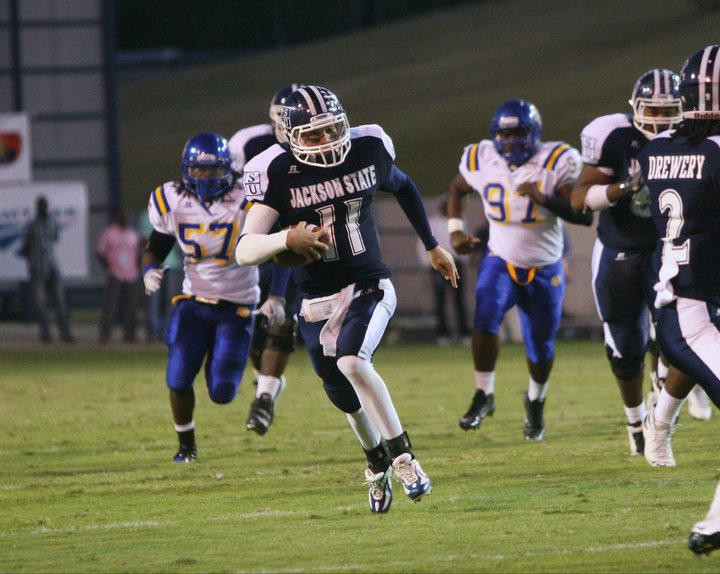The Confederate flag has been a hot button topic in recent weeks since a white man killed nine black people during Bible study inside a South Carolina church.
Former HBCU head coach Billy Joe recently provided an account of an experience he had with an athlete and the Confederate flag.
“While we were in route to the campus police station, I asked the campus policeman, “what’s this all about.” He said your white freshman football kicker parked his motorcycle in front of the campus police station (for safekeeping) and the motorcycle has a CONFEDERATE FLAG on it,”Joe wrote on his Facebook page.
After discovering the flag, which he described as the size of a postage stamp, Joe said what the flag symbolized was far more important than its size.
“It still portrayed the same message to African Americans and other United States citizens: It implied racism, bigotry, prejudice, injustice, enslavement, hangings, rape, Jim Crow laws, segregation, treason and etc.,” he wrote.”
Joe said he didn’t believe his kicker was racist, however.
“After all, he was just a freshman and a nerdy 18-year-old white kid attending a black college in the South. He had adopted the black hip-hop genre: He had the black hair (tight curls/dreads), the language (ebonics), the mannerisms and black friends,” wrote Joe.
“(The flag) was similar to a person wearing a jacket with swastika emblems and nazi flags on it to a Jewish synagogue; it was similar to a black person attending a Ku Klux Klan cross burning rally with his white wife.”
Joe also chided who he called “Confederate flag lovers” about their reverence for the divisive symbol.
“Why did you allow racist people and hate groups to hijack your confederate flag, without so much as a whimper or a whisper from you, until now,” Joe said. “Removing the flag is just a gesture and a symbol. It will not solve any of the United States woes, or save lives. But it will bring the south into congruency with the rest of the country and the world.”









In 1980 as a member of the Grambling State University Basketball Team, we played Ole Miss in the NCAA National Invitation Basketball Tournament (NIT) The experience was surreal. We entered the arena for warmups, and stepped into a 1800’s Mississippi Klu Klux Klan Rally. young kids, students, and elderly Rebel Supporters threw ice, bananas, and rocks at us. They called us Coon, jiggaboos, n-iggers and worse, During the game, there were times when the crowd was whipped up into a frenzy when the band played Dixie. What they did not know; was that we were representing the SWAC.
When we arrived to the arena there were 15 buses of Students from Mississippi Valley, Alcorn and Jackson State there to support us, they gave us the courage to weather the storm of racist chants of bye, bye blackbirds and cheered wildly for us when we took the lead in the last 3 minutes of the game.
We lost by one point, and the most pitiful scene I have ever witnessed was the shame and hurt in the faces of the black players who played on that team. The game was won by the stellar play of Elston Turner and Carlos Clark, as well as Sean Touhy the father character of “The Blindside” and All-American John Stroud. What was evident that day was “Dixie” was not superior, nor was it sacred, It was dead.
We walked back to our bus after we showered, to see the Black players marveling at how a team of All Black Players from the “Mythical Black Notre Dame of Sports” also had a Damned Good Basketball Team. They walked with us and talked to us like we were kindred spirits. We shared their pain, as they fought the battle within the beast of predjudice, and visceral patronization. We never brought up what had just happened in the arena. We acknowledge d the pain through our eyes. We both spoke the language of unspoken.
For one night in Dixie, Justice did reign
Thanks for sharing your experience Mr. Simpson. I had to pleasure of watching you play during your days at Grambling.